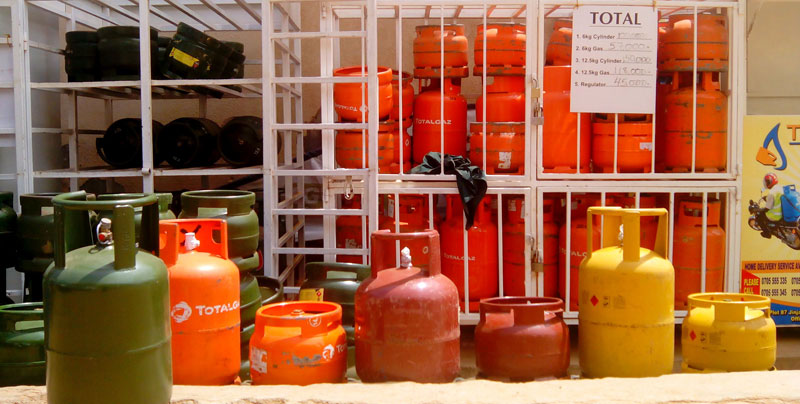Germany Envoy tips on cooking Gas
Uganda must seriously consider adopting natural gas if it is to counter the dangerous consequences of forest depletion brought about by reliance on wood fuel as a source of cooking energy, says the Germany Ambassador to Uganda.
Ambassador Peter Blomeyer says Uganda’s reliance on wood fuel is pushing the country into dangerous territory that will spark environmental disasters such as droughts, through loss of trees, but also worsen climate change.
“You have to move away from using fire wood and in this case liquid gas serves as a very good alternative at a time when it is imperative to save what is left of natural forests in Uganda,” Blomeyer told The Sunrise in an interview at Serena Hotel on Tuesday this week.
Blomeyer’s call came after a breakfast meeting that was jointly organized by The Economic Research Center (EPRC) of Makerere University in conjunction with the Germany Embassy with a view to discuss Uganda’s preparedness for climate and environmental changes in the Albertine Grabben.
While energy and environment experts who attended the breakfast agreed with Blomeyer, they argue that a multidimensional effort ought to be mounted by among others, the Uganda government agencies, the civil society, and religious leaders with a view to change the mindset of Ugandans towards gas for domestic use.
“There is an urgent need to create awareness among Ugandans to the effect that liquid gas is now the way to go if we are to move away from the use of charcoal and firewood in our homes. Millions of trees are sacrificed daily every time a meal is prepared,” said Dozith Abeinomugisha, a Principal Geologist in petroleum exploration and production.
Lamenting the low gas consumption which he said is threatening to deter liquid gas production when oil extraction soon gets underway, Abeinomugisha said that the original idea of the ministry of Energy was to devote an entire oil well – king fisher in particular, towards liquid gas production for local consumption.
“But we were surprised when we were informed by a research conducted by oil companies that liquid gas consumption is still too low to support such a massive scale of production in Uganda,” he added.
Calling for a robust awareness campaign to be led by the Energy ministry, Tom Okurut, the Executive Director of the National Environmental Management Authority (NEMA) however warned that there is need to demystify unfounded morbid fear about gas by many Ugandans who still view it as a risky product to keep at home.
EPRC’s Executive Director Sarah Ssewanyana noted that Uganda’s low consumption of Liquid Natural Gas is a glaring contradiction to the Vision 2040 which the National Planning Authority has sold to Ugandans.
The irony, in her view, is that Vision 2040 presupposes a growing middle class with a capacity to afford gas cylinders, cookers and the liquid gas itself sustainably.
Energy experts however express pessimism at the idea of swapping firewood for natural gas citing lack of government will.
The Ambassador’s word of advice however comes against tough financial conditions that include an expensive dollar, which determines the cost of oil products.
Currently, the cost of gas remains a prohibitive energy source in Uganda. Users say that a six-kilo cylider of gas costs more than Ushs60,000, almost the same cost of a bag of charcoal and yet it only cooks for half the time.
President Museveni has rooted for construction of more hydro electric power (HEP) plants to provide cheaper power to substitute charcoal.
At the same time however, the government earlier said it would not subsidize hydro electric power to consumers arguing that it needs to use the proceeds to put up more plants but also allow investors recoup their investment.








